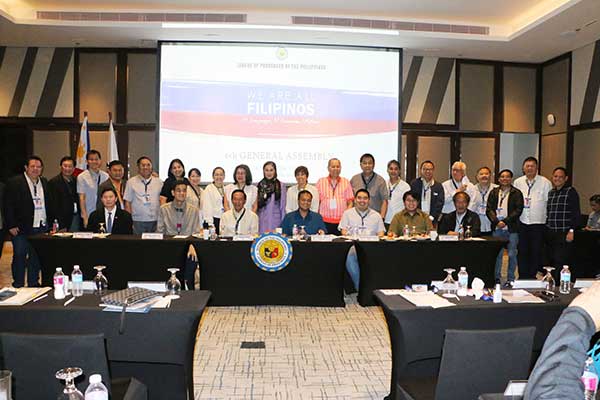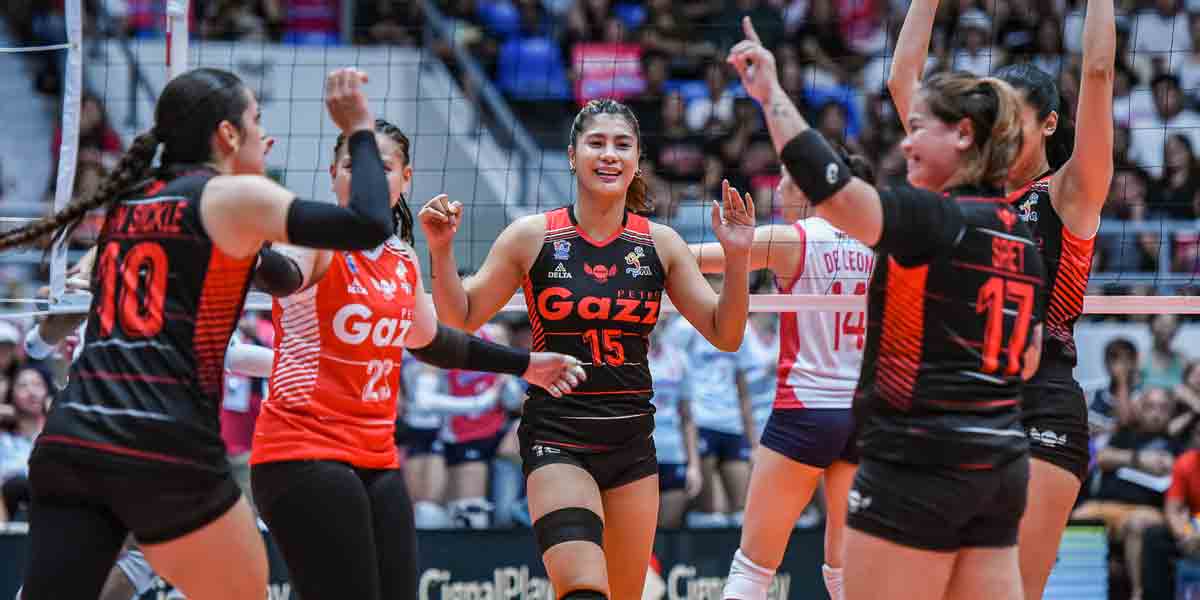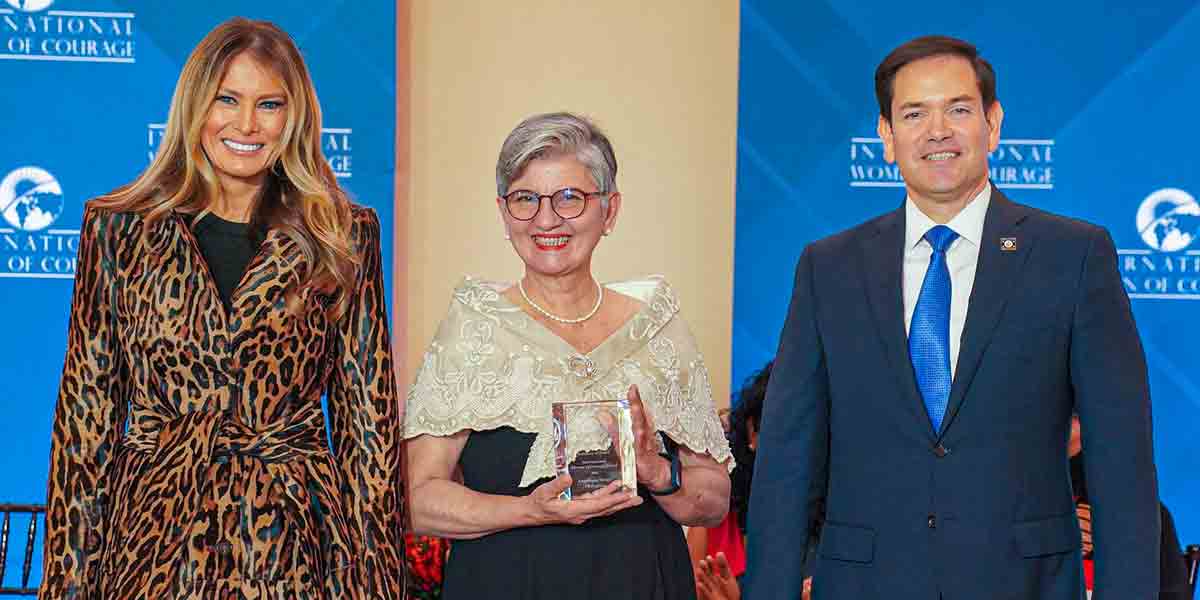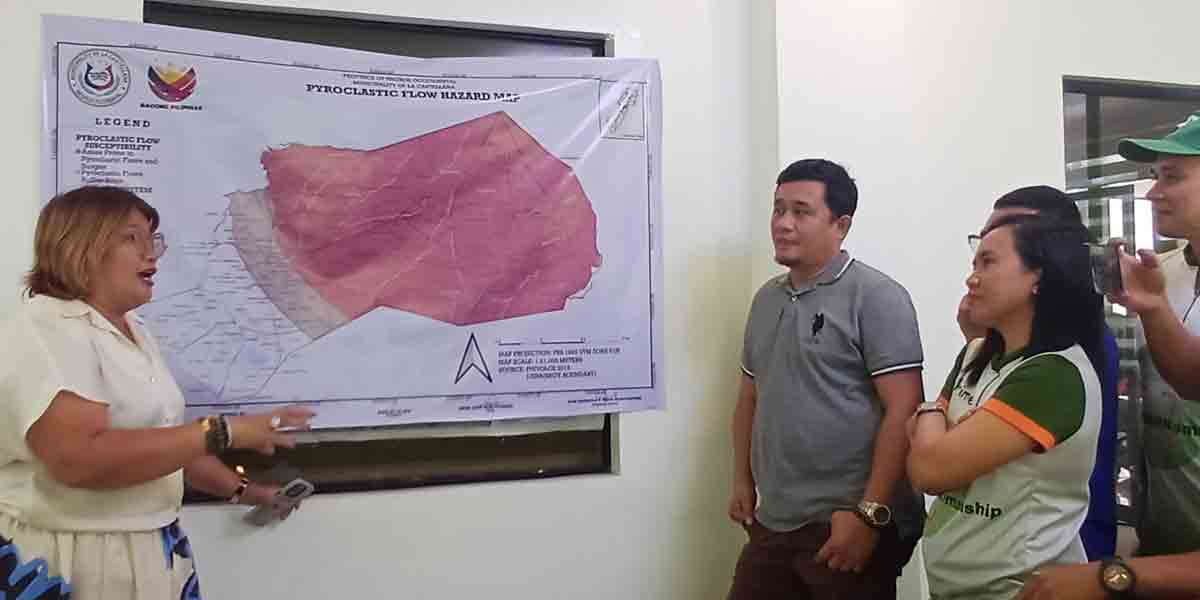
By Angela Ballerda, Gab Yanzon and Carmela Fonbuena
Philippine Center For Investigative Journalism
Last of 2 parts
For political clans that dominate local politics, the tactics to keep the capitol, the seat of power for local political kingpins, are almost the same nationwide.
Sitting governors seek reelection and max out the allowable three terms for a total of nine years. If they are not seeking reelection, they are swapping positions with their relatives or are running for higher or lower positions.
In Sulu, Gov. Abdusakur Tan has been moving in and out of the governor’s office in the island province of Mindanao since 1996. Yusop Jikiri and Benjamin Tupay Loong each served one term from 2001 to 2007, after which Tan returned and has maintained his control of the capitol ever since.
His son and namesake Abdusakur Tan II served two terms as governor from 2013 to 2019, while the elder Tan held the position of vice governor for one term. In 2016 he ran for governor of the now-defunct Autonomous Region in Muslim Mindanao but lost to former Gov. Mujiv Hataman of Basilan.
In 2019 he returned to the Sulu capitol as governor. Next year, after serving two terms, the younger Tan will once again run for governor, while the elder Tan will aim for the vice governorship.
In Camarines Sur, Luis Raymond Villafuerte, the patriarch of the Villafuerte political dynasty, will campaign to return to the capitol. He has alternated positions with his son, Camarines Sur 5th District Rep. Miguel Luis Villafuerte, and his grandson, incumbent Gov. Luigi Villafuerte.
In Lanao del Norte, Rep. Khalid Dimaporo will also seek to succeed his mother Gov. Imelda Quibranza Dimaporo.
The 1987 Constitution prohibits political dynasties, but Congress has not passed an implementing law. Without the prohibition, the introduction of term limits has facilitated the expansion of political dynasties in the country.
“You introduce term limits without anti-political dynasty legislation… the unintended consequence is dumami sila (their numbers grew). Since papa, mama, lolo, lola, tito, tita have nothing to do, they run for local positions,” political science professor Julio Teehankee said.
Before the term limits, he said dynasties were “thin” because political positions were inherited successively. Politicians hold the same position and pass it on only when they retire from public service
The term limits accelerated the generational shift because politicians are forced to move positions after three maximum terms.
Family rigodon
Spouses, father and child, mother and child, siblings, and cousins regularly swap posts.
Former Elections Commissioner Luie Guia offered an explanation: politicians understand that it can be difficult to return to power once they lose it to other politicians or political clans.
Clans will hold on to these positions for as long as they can, he said.
“The next in line is the child or the spouse, even if they’re just placeholders. Because you don’t want to lose that kind of power, you pass it on to your family. And if the brother, sister, or nephew enjoys the position, you’ll find them another post as well,” he said.
In Pampanga, mother and son will seek to switch posts. Vice Gov. Lilia Pineda seeks to reclaim the post of governor while her son Gov. Dennis G. Pineda runs for vice governor.
In Marinduque, father and son are bidding to switch seats. Gov. Presbitero J. Velasco is running for the lone congressional seat currently held by his son Lord Allan Velasco. The son is running for governor.
Masbate Gov. Antonio Tero Kho is running for the 1st District seat, a position held by his son Rep. Richard Kho. The son is eyeing his father’s current post.
In Laguna, a husband and wife will attempt to swap positions in government. Gov. Ramil Hernandez will run for Laguna’s 2nd District seat while his wife Rep. Ruth Mariano-Hernandez runs for the gubernatorial position.
In Guimaras, Gov. JC Rahman Nava and his wife Rep. Maria Lucille Nava are also seeking to switch seats.
Cousins Gov. Edwin Marino Ongchuan and 2nd District Rep. Harris Christopher Ongchuan in Northern Samar; Gov. Rosalina G. Jaloslos and her nephew Dapitan Mayor Seth Frederick Jalosjos in Zamboanga del Norte; and brothers Rep. Johnny T. Pimentel and Gov. Alexander Pimentel in Surigao del Sur are also planning similar swaps.
Who defeats political dynasties?
When the dynasties grow too big, they start fighting each other for political positions.
In La Union, where the Ortegas have ruled for over a century, reelectionist Gov. Raphaelle Veronica Ortega-David will be challenged by her own grandfather Vice Gov. Mario Ortega.
Infighting among dynasty members is not new, Teehankee said, citing the cases of the Binays of Makati City, Cayetanos of Taguig City, and Duranos of Cebu, among others.
When the clan has no opponent, members turn against each other, he said.
Some political clans rule longer than others. Often, it is a political dynasty that dislodges another political dynasty.
In Bukidnon in Mindanao, the political clan of former Senate President Juan Miguel Zubiri lost the capitol in 2022 after a decade of rule in the province.
The son and namesake of the family matriarch, former Rep. Manuel Zubiri, lost to Gov. Oneil Roque by a margin of less than 5,000 votes. Roque won with 365,999 votes compared to Zubiri’s 361,426 votes. Roque’s wife Laarni also won the House seat vacated by Zubiri.
Meanwhile, Senator Zubiri is completing his second term next year. He is not seeking another position.
Sometimes, political events and shifts in voter preferences can elevate leaders outside of political families to highly competitive positions.
In Maguindanao del Norte, Gov. Abdulraof Macacua was appointed in 2023 to lead the newly created province. He is the chief of the Bangsamoro Islamic Armed Forces, the armed unit of the Moro Islamic Liberation Front, which now governs the Bangsamoro Autonomous Region in Muslim Mindanao (BARMM).
Macacua will not run for governor next year, however. He is aiming for a district seat in the BARMM parliament, although there are ongoing efforts to postpone the parliamentary elections next year.
Meanwhile, the entrenched Mangudadatu and Mastura political dynasties are set to battle for control of the new province in the upcoming elections.
In Nueva Vizcaya, the death of Gov. Carlos Padilla in 2023 catapulted Vice Gov. Jose “Jing” Gambito to the top post in the capitol. Gambito will seek his first term next year.
There are instances where leaders without ties to political dynasties have successfully prevailed over entrenched clans.
In Batangas, Gov. Hermilando Mandanas defeated the Mendoza and Leviste clans in 2016. Similarly, in Davao del Norte, Gov. Edwin Jubahib ended the Del Rosario family’s long dominance in the province in 2019.
Celebrity power
Who else can defeat political dynasties? On a few occasions, popular celebrities have managed to unseat them.
Bulacan Gov. Daniel Fernando was a critically acclaimed actor, famous for a range of movies such as the 1985 controversial erotic thriller Scorpio Nights, directed by Peque Gallaga.
His political and entertainment careers intertwined. He was elected vice governor of the province in 2010, but he did not disappear from TV screens. He took on small and big roles in shows like Col. Billy Bibit, RAM in 1994, Ang Pagbabalik Ng Probinsyano in 1998, Totoy Bato in 2009, and My Life Is Murder in 2019.
After serving three terms as vice governor, he was elected governor in 2019, succeeding his then ally Gov. Wilhelmino Sy-Alvarado.
Fernando is not exactly seen as a “dynasty buster.” But when Sy-Alvarado ran to regain the capitol in 2022, Fernando defeated him by a wide margin. He is seeking his third term next year.
Lito Lapid defeated former Pampanga Gov. Bren Guiao in 1995. Vilma Santos defeated former Batangas Gov. Armand Sanchez in 2007. E.R. Ejercito defeated former Laguna Gov. Teresita “Ningning” Lazaro in 2010.
Eyes are again on movie and TV star Vilma Santos, who is aiming to return to the Batangas capitol next year.
Santos became the province’s first female governor in 2007 after making a name for herself as a promising politician when she served three terms as Lipa City mayor from 1998 to 2007. In 2016 she ran to represent the then newly created 6th District and won. After two terms, she took a hiatus from politics to give way to her husband Ralph Recto’s run for her congressional seat.
The sudden move of Santos’s sons to join politics next year disappointed even her former supporters, however.
Her son, actor and TV host Luis Manzano, is running to be her vice governor. Another son, Ryan Recto, is running for her old House seat.
“For the longest time, [Vilma] was one of the celebrity politicians who excelled and managed Lipa well as mayor; she also performed well as a congresswoman. And some even see her as one of the rare few celebrity politicians with a more reformist orientation,” said Teehankee.
“E bakit naman biglang buong pamilya talaga? Lahat-lahat? (Why the sudden move to involve the whole family)?” Teehankee said.
Santos is not the first celebrity to be elected and establish her own political dynasty. Former President Joseph Ejercito Estrada, the late Sen. Ramon Revilla Sr., and Lapid have done so before her.
Fernando remains a rare exception so far. — PCIJ.org




















